Programs
Infant 0-18 months
Children begin to explore the environment, touch and manipulate objects. Learn by imitating and observing other people. Show understanding of words for highly familiar objects. Understand and can follow very simple instructions.
Development Milestones
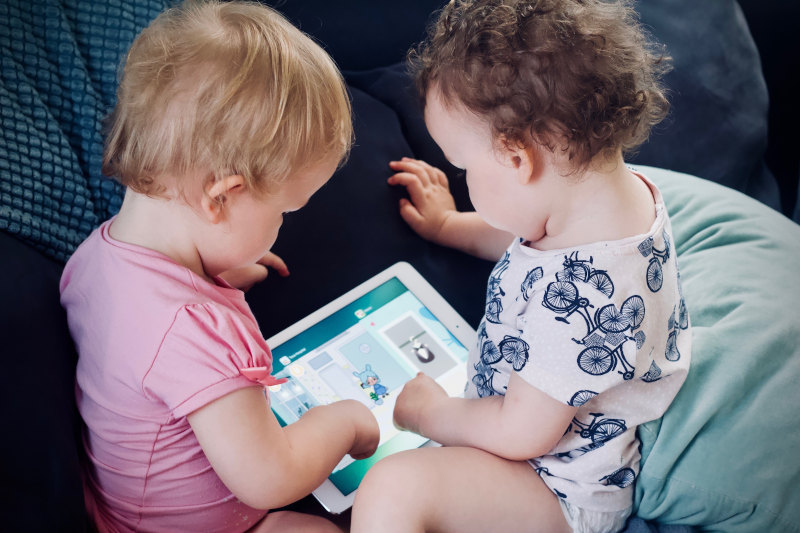
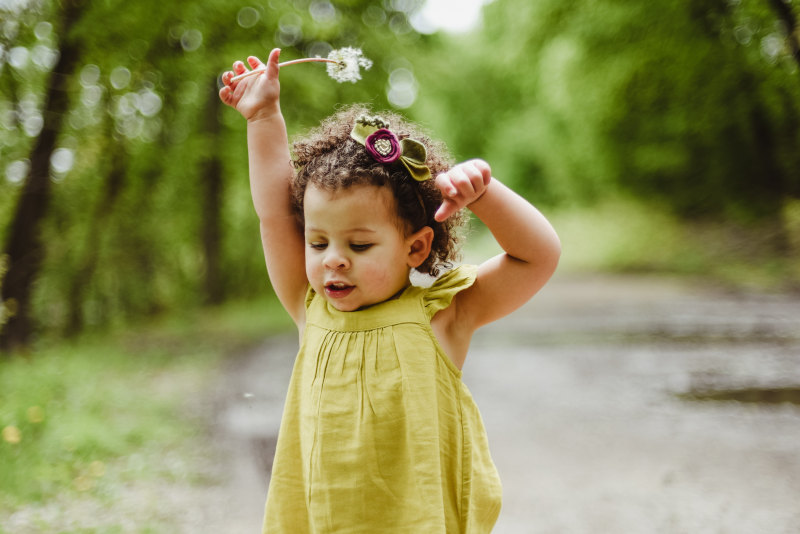
Physical
0 – 3 months
- Sucking, grasping reflexes
- Lifts head when held at shoulder
- Moves arms actively
- Is able to follow objects and to focus
3 – 6 months
- Rolls over
- Holds head up when held in sitting position Lifts up knees, crawling motions
- Reaches for objects
6 – 9 months
- Sits unaided, spends more time in upright position Learns to crawl
- Climbs stairs
- Develops eye-hand coordination
9 – 18 months
- Achieve mobility, strong urge to climb, crawl
- Stands and walks
- Learn to walk on his or her own
- Learns to grasp with thumb and finger
- Feeds self
- Transfers small objects from one hand to another
Mental
- Remember people and objects that are not present
- Imitate other people’s facial expressions, sounds and actions
- Imitate what they see on TV, even if they don’t understand what they are doing
- Understand what they hear before they can speak
- Make noises to communicate with others and to show satisfaction or displeasure
- Recognize their own name
- Begin to explore the environment, touch and manipulate objects
- Learn by imitating and observing other people
- Show understanding of words for highly familiar objects
- Understand about a dozen common phrases
- Begin to use me, I, you
- Understand and can follow very simple instructions
- Have very short attention spans
Social
- Cry, flail arms and legs when in pain, tired, hungry, cold, thirsty, wet, lonely or in a new situation and/or with new people
- Smile, babble and coo to show pleasure, joy and excitement
- Recognize the difference between familiar people and strangers
- Develop strong bonds with people regularly caring for them, a parent or other adult and show anxiety when separated
- Are friendly to familiar people and afraid of strangers
- Recognize distress of others by showing distress and crying
- Enjoy audience and applause
- Can play alone for brief periods of time
- Become angry when frustrated
- Are afraid of strangers and are wary of unexpected situations
Toddler 18-36 months
Children learn social-emotional skills in close relationships with adults through interactive back-and-forth communication, shared experiences, and nurturing guidance.
Development Milestones
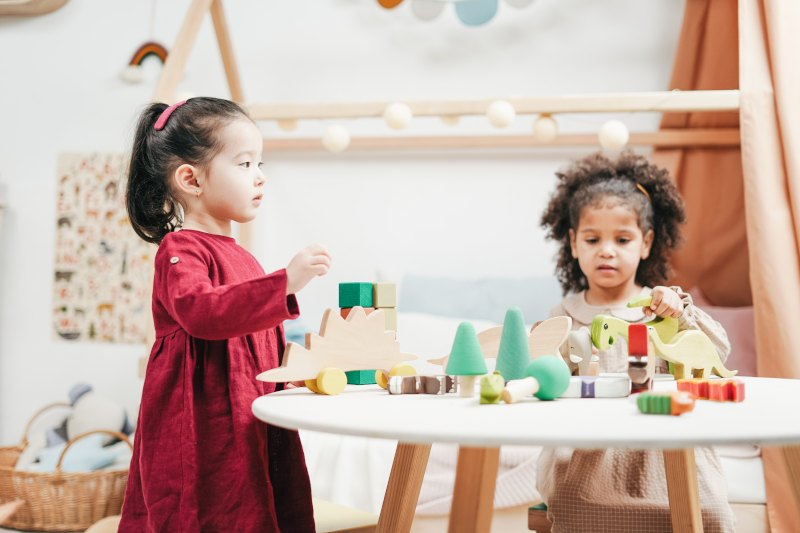
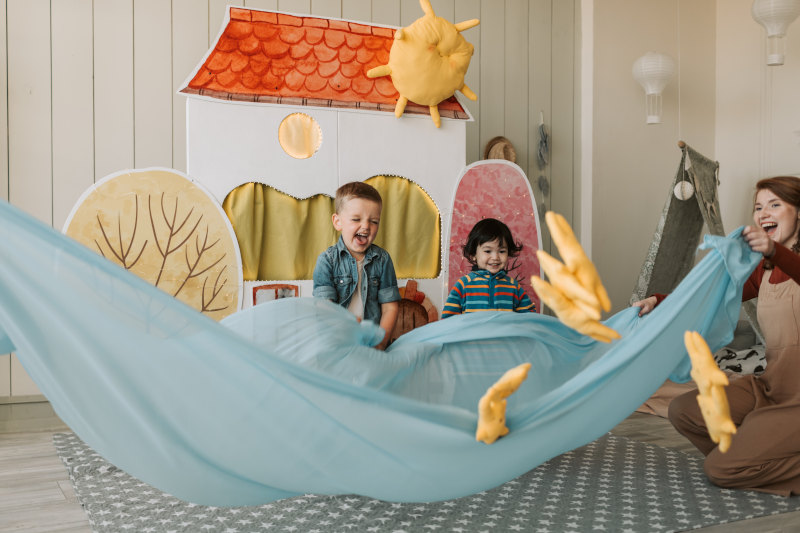
Physical
- Enjoy physical activities such as running, kicking, climbing, jumping, etc
- Beginnings of bladder and bowel control towards latter part of this stage
- Are increasingly able to manipulate small objects with hands
Mental
- Have mental images of people and objects that are not present
- Can use imagination and begin to play pretend games
- Use an object to represent a person, like a doll to represent a mother or a child
- Recount events of the day and imitate actions and events that occurred in the past
- Has a vocabulary of several hundreds words; can use two- to three-word sentences; repeat words
- Listen to stories for a short period of time
- Understand that images and pictures represent real objects and people
- Have a vague notion of time; still confuse the meanings of today, tomorrow and yesterday
- Generally have short attention spans and can be easily distracted
- Are just beginning to remember rules and don’t really understand right from wrong
Social
- Are developing a strong sense of themselves as separate individuals.
- Think they are the center of the world
- Beginning to show signs of independence; can be stubborn and contrary: say No to adults
- Are possessive, with strong notions of territory: This is mine! Having difficulty sharing
- May be having trouble waiting and want things right now
- Have trouble expressing emotions with words; when frustrated or angry can have tantrums or hit and kick to get what they want
- Play side by side with others more than cooperatively with them
- Begin to understand that other people have expectations of them
- Are more aware of feelings of others; enjoying adult’s attention
- Express their feelings through pretend play, make believe play
Preschool & Transitional Kindergarten 3-6 years
Children are fascinated by the world around them. Speak in longer sentences and will start asking lots of ‘who’, ‘what’, ‘where’ and ‘why’ questions as they try to understand more. Enjoy playing with other kids, learning rules and taking turns. Start to form real friendships as they begin to develop social skills.
Development Milestones
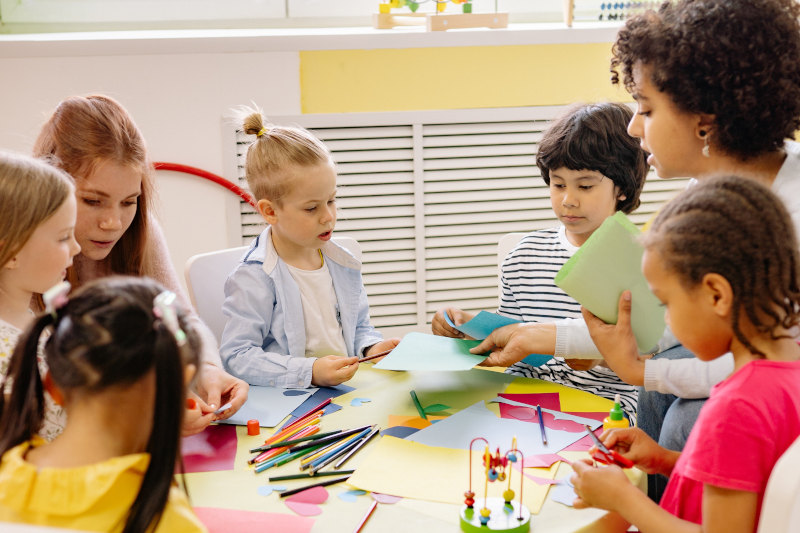
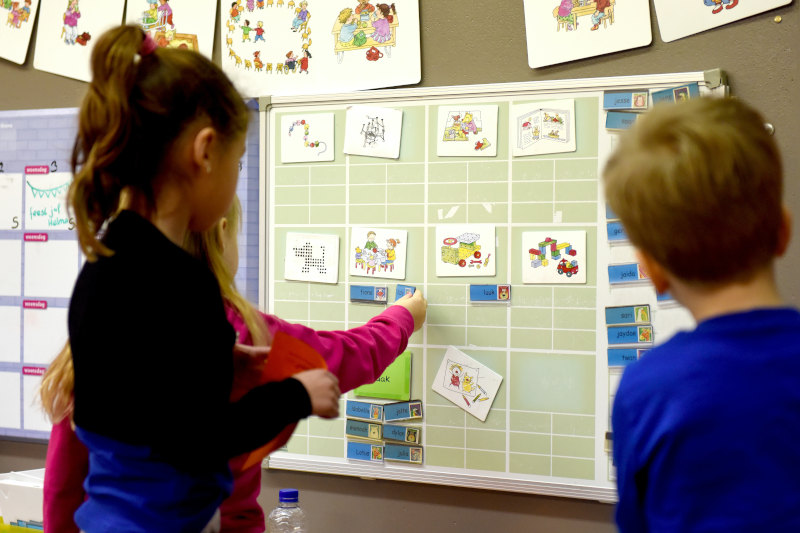
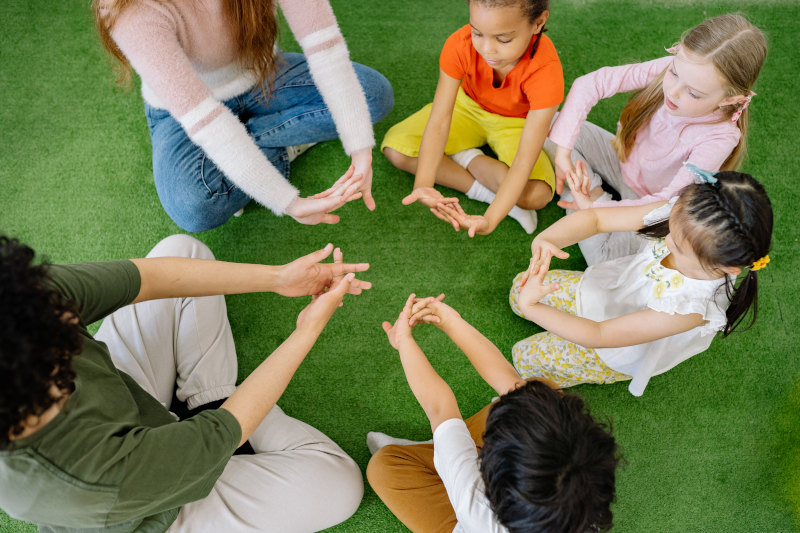
Physical
- Enjoy physical activities such as running, kicking, climbing, jumping, etc
- Beginnings of bladder and bowel control towards latter part of this stage
- Are increasingly able to manipulate small objects with hands
Mental
- Have mental images of people and objects that are not present
- Can use imagination and begin to play pretend games
- Use an object to represent a person, like a doll to represent a mother or a child
- Recount events of the day and imitate actions and events that occurred in the past
- Has a vocabulary of several hundreds words; can use two- to three-word sentences; repeat words
- Listen to stories for a short period of time
- Understand that images and pictures represent real objects and people
- Have a vague notion of time; still confuse the meanings of today, tomorrow and yesterday
- Generally have short attention spans and can be easily distracted
- Are just beginning to remember rules and don’t really understand right from wrong
Social
- Are developing a strong sense of themselves as separate individuals.
- Think they are the center of the world
- Beginning to show signs of independence; can be stubborn and contrary: say No to adults
- Are possessive, with strong notions of territory: This is mine! Having difficulty sharing
- May be having trouble waiting and want things right now
- Have trouble expressing emotions with words; when frustrated or angry can have tantrums or hit and kick to get what they want
- Play side by side with others more than cooperatively with them
- Begin to understand that other people have expectations of them
- Are more aware of feelings of others; enjoying adult’s attention
- Express their feelings through pretend play, make believe play

